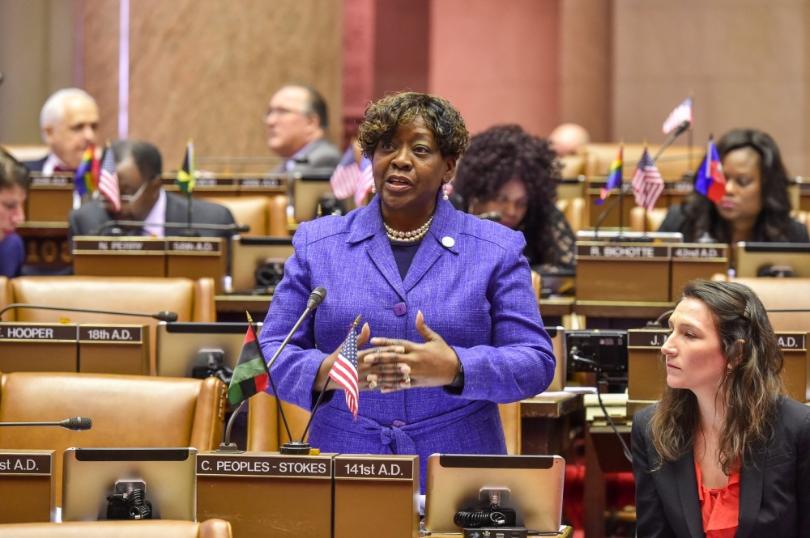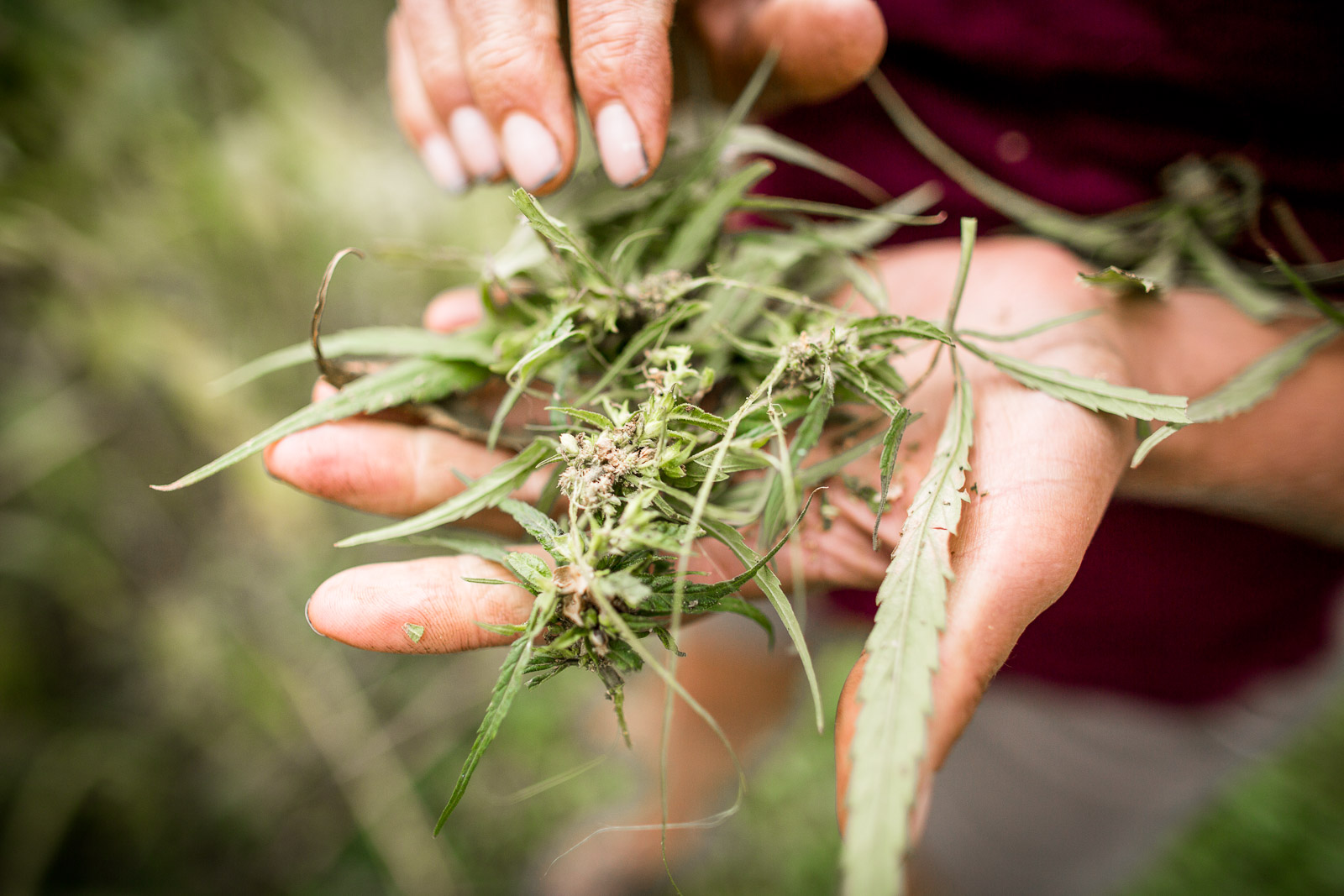As New York state legislators struggle to move forward on a cannabis legalization bill, the debate in Albany is heating up about exactly how prohibition should end—and who will benefit.
Bodega owners, farmers, and others want to make sure they’re not shut out of the legal industry.
With every passing week, more voices are speaking up about the shape of a final legalization plan. It’s not just traditional drug reform advocates. With legalization looking like more of a real possibility, new voices—including New York City bodega owners and rural upstate farmers—are jumping in to shape the potential new law.
Earlier this month, activists with the Drug Policy Alliance (DPA), in partnership with Sensible Marijuana Access through Regulated Trade (SMART NY) and other groups, amassed in the Capitol. They marched and rallied for a more inclusive end to prohibition. They’re specifically asking New York Gov. Andrew Cuomo to fold a competing bill into his own proposed marijuana legalization plan.
No Bill Without Equity
That bill, called the Marijuana Regulation and Taxation Act, comes from Assemblywoman Crystal Peoples-Stokes, the majority leader, and state Sen. Liz Krueger, a longtime advocate for drug policy reform. The key component of their bill: reparations for the drug war.
Peoples-Stokes says her bill confronts “issues of racial and economic justice … that disproportionately impact people and communities of color.”
Cannabis tax dollars should flow to those damaged by the drug war, says Peoples-Stokes. Some form of expungement must be a part of Cuomo’s plan, she adds. New York should seal up criminal records for hundreds of thousands of individuals with small marijuana convictions, “so they can be eligible for federal student loans, public housing, and employment opportunities to live productive lives in our society,” she says.
 NY State Assembly majority leader Crystal Peoples-Stokes (D-Buffalo) is leading the charge for equity. (AP photo)
NY State Assembly majority leader Crystal Peoples-Stokes (D-Buffalo) is leading the charge for equity. (AP photo)
Smart Start To New York Legalization?
Gov. Cuomo’s bill currently sits within the proposed state budget, which is in a 30-day amendment period that ends on April 1. The legislature votes on the entire budget as one document, rather than piece-by-piece.
Members of the “start SMART NY” coalition include groups working on criminal justice reform, civil rights, and public health. They say their amendments take on board lessons learned from the ten legalized states, as well as the expertise of social workers. They call it the gold standard for comprehensive marijuana reform.
Their bill includes:
- Diversity measures: An equity program would put small businesses first, and support them with banking and small business loans. It can cost $1 million or more to open a modern, competitive cannabis store.
- Cannabis tax revenue sharing: The START bill calls for the state to dedicate a portion of the revenue to communities most impacted by decades of cannabis criminalization.
- Criminal record reform: The START bill would seal and vacate, or expunge, certain cannabis convictions. The bill also addresses immigration cases, family law cases, and housing discrimination based on past cannabis offenses.
Shadow Cannabis War Rolls On
New York’s image as a welcoming home for immigrants belies a grim reality: People are now being deported for old marijuana convictions at alarming rates. Low-income families are also being split apart.
Marie Mark, Immigrant Defense Project
A two-tiered system of justice requires immigrants and people of color to act perfectly or risk having their children taken away or family members deported.
“One of the crazy things,” says Supervising Attorney Marie Mark of the Immigrant Defense Project, “is that there’s no end to [the] statute of limitations from when a [cannabis] conviction can be the reason that the US government uses to try to deport someone or deny them immigration status.”
“So convictions that are 20, 30, and even 40 years old still have these horrible penalties. I think that’s one of the reasons we evolved to thinking about, ‘How do I expunge people’s convictions in New York? … How can we make sure [legalization] is impactful for non-citizens also?’”
Expungement Baked Into the Law
In many states that legalized prior to 2019, officials considered expungement an afterthought—a second-level matter of legal reform. But Mark says expungement can’t wait in New York family courts, where judges use cannabis as a pretext to separate children from their parents.
“Marijuana is one of the things that we use to look at the lives of poor people and people of color,” she says, “and judge them extremely harshly for things that middle-class white women are talking about doing in the New York Times and on Park Slope parenting lists.”
Activists Get A Hearing
The day after the rally, the New York legislature held a hearing that surfaced some of the shortcomings of Gov. Cuomo’s proposal.
In response, Alphonso David, Counsel to the Governor, stated that Gov. Cuomo’s plan had been shaped by a year of research in consultation with regulators from ten states, the federal government, and Canada. Cuomo’s team ran 17 public outreach meetings to get as much input as possible.
Gov. Cuomo’s current bill satisfies a lot of activists demands, says David. It promises a “robust social justice and economic justice framework, ensuring the broadest possible inclusion in all aspects of this new industry, [including] a comprehensive social equity program. … Taking no action and maintaining the status quo is simply no longer sustainable.”
Potential Delays
Joining with progressive critics of Gov. Cuomo’s plan are anti-legalization law enforcement groups. Their primary concern, they say, is a potential increase in intoxicated driving.
Some lawmakers are speculating that the legalization issue could pull the annual budget past its deadline—or could be removed from the budget and continue as a separate bill.
Others are speaking up to shape the legalization bill as well. Recently, bodega owners and farmers in rural counties—which could ban cannabis growing under the current bill—both voiced criticism with Cuomo’s plan. Bodega owners want to sell cannabis legally. Rural farmers are worried that their county leaders, stuck in old-school drug war thinking, could ban cannabis growing and prevent them from raising a potentially lucrative new crop.
It’s all making for slow progress in Albany. Some lawmakers are now speculating that the legalization issue could pull the annual budget past its deadline—or could be removed from the budget altogether and continue on in a separate bill.
Subscribe to Leafly email newsletters and get updates on this story. Email “subscribe” to news@leafly.com





